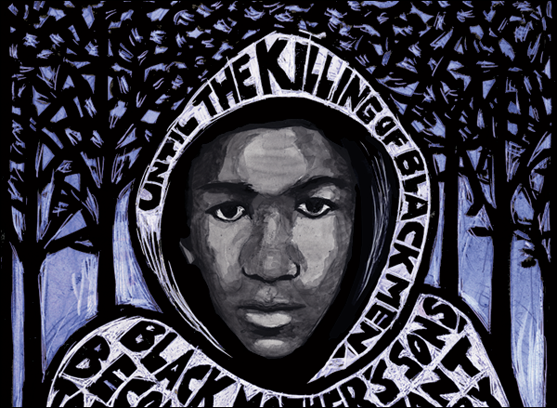
I'll stand her ground
What I'm telling my daughter, an African-American teenager, about Trayvon Martin's death.
What I want to know now is what I’m supposed to tell my daughter, an African-American teenager. Maybe, since she’s a girl, she won’t be seen as quite so threatening by white strangers on the street. Maybe, when she starts driving, she won’t be pulled over by the cops for “driving while black”—at least not as often as if she were a boy. (Lord, here I was just worried about when my teen starts driving because, you know, Teens. Driving.) Maybe she will just be followed in stores when she goes shopping. Maybe men will just make assumptions about the sexual availability of my beautiful girl.
But I have to explain it to her. I have to explain why George Zimmerman literally got away with murder, and why so many people seem to think that’s OK. I have to explain how Trayvon was armed with a sidewalk—a sidewalk!—which somehow made his young black presence more of a threat than a white man with a gun. I have to explain, because she’s being raised by white parents, and as a child she has been protected from much of the bitter truth of racism in this country. Because we knew to teach our little girl about the civil rights movement and the heroes who fought racism so that she could live in a better world. But we couldn’t stand telling a 5-year-old, a 6-year-old, a 7-year-old what is obviously the case, that those heroes were only able to take us a few steps down the road, and we have so much further, so much further, to go.
She’s a teenager now, tall and strong, who carries herself with a dancer’s confidence and grace. And now I’m going to have to explain to her that while she will need to stand her ground with boys who want more from her than she wants to give, and she will need to stand her ground against peers who want to offer her alcohol or drugs, and she should stand her ground against anyone who wants to convince her that their warped world-view is true, that she cannot afford to stand her ground if she is unjustly accused by the police or anyone else in authority. She cannot even afford to stand her ground against some self-appointed vigilante who decides to appoint himself in charge of where she is or is not allowed to walk. Because no amount of dignity or self-respect is worth getting killed at the hands of someone who knows you are dangerous because of your clothes and the color of your skin.
She cannot afford to stand her ground. And so I am going to have to. I, and all my other white, middle-aged friends and family who are entitled to walk down a street anywhere we like, we are going to have to stand her ground. We are going to have to tell the truth about racism, about guns, about where the danger in our society really lurks. And maybe, when I know that thousands and thousands of middle-aged white people are standing her ground, standing Trayvon’s ground, then having this conversation with her will not completely break my heart.
This article appeared in the Fall 2013 issue of UU World (page 18). It was first published on July 15, 2013 at Quest for Meaning: A UU Collective. Illustration (top) © Ricardo Levins Morales.
Comments powered by Disqus






